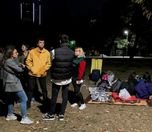* Photo: Yurtsuzluk Twitter account
Click to read the article in Turkish
Protesting the insufficient vacancies in dorms and high housing prices and dorm fees, a group of university students gathered in İstanbul's İstiklal Avenue in Taksim yesterday evening (October 6). Walking along the avenue in blankets, they voiced their housing problems.
Emphasizing that thousands of students have been unable to find a place to stay with the resumption of in-class education at universities, students said that the government does not solve the housing problem.
"Instead of solving our problem, the government attacked [us] with the police," the students said, briefly adding, "We have been in the gardens, at the parks and on the streets of Turkey for days. Today, we walked along the İstiklal to draw attention to this problem."
Students also said that they are targeted by President and Justice and Development Party (AKP) Chair Recep Tayyip Erdoğan and asked for people's support in the face of this: "We cannot find housing, we cannot make a living. We call on you to join voices with students."
What happened?
In a social media message shared by the "Barınamıyoruz Hareketi" (We cannot find housing Movement) on September 20, 2021, it was underlined that several university students who have returned to their schools for in-class education after two years have become homeless due to the insufficient capacity of state dorms, high prices of private dorms and rents.
"We have become homeless due to the rent increases of 70 percent to 290 percent across Turkey," the movement said on social media.
In the face of this problem, several university students started staying the night at parks across Turkey in protest. However, the protests of students were met with police intervention.
Addressing the public following the Presidential cabinet meeting on September 27, 2021, President and ruling Justice and Development Party (AKP) Chair Recep Tayyip Erdoğan referred to the protesting students as "so-called students" and briefly stated the following:
"Turkey is the country which has the highest number of public higher education dormitories and beds in the world. I would like to underline that some of those who have been recently lying on banks in some parks and gardens have nothing to do with being students."
Referring to the Gezi resistance of 2013, Erdoğan argued that the protests "were another version of the Gezi Park incident."
At the night of September 28, the police attacked the protests of university students staying the night at parks against high dorm fees and rents in İstanbul's Kadıköy and İzmir, detaining nearly 80 students.
Statistics on higher education, dorms
In a statement on September 23, the Education and Science Laborers Union (Eğitim-Sen) had also shared some figures. According to this statement, the number of universities increased from 93 in 2002 to 203 in 2020, with the project of 'a university to every city.' Accordingly, the number of students also increased from 1 million 882 thousand to 8 million 241 thousand.
While there were 191 public dormitories in Turkey in 2020, this number increased ro 773 in 2020; however, as the number of dorms has not increased proportionately to the number of students, several university students are now having problems with finding housing.
As for the number of private dormitories, it increased from 2 thousand 210 to 4 thousand 406 in this period. While 2 thousand 894 dorms are owned by associations, 416 are owned by foundations, 368 are owned by people and 666 dorms are commercial dorms.
The Eğitim-Sen union has said that students are pushed to the dorms of religious cults and communities, noting that the İlim Yayma (Spreading Wisdom) Society has 107 dormitories, Ensar Foundation has 60 dorsm, TÜGVA has 38 and TÜRGEV has 18 dormitories.
The statement of the union has also indicated that "the students staying at the dormitories of religious foundations and associations were provided with a financial support of 650-800 lira per student last year", adding that "the total amount of support to be provided in the first nine months of the year was 173 million 704 thousand lira." (CA/AÖ/SD)




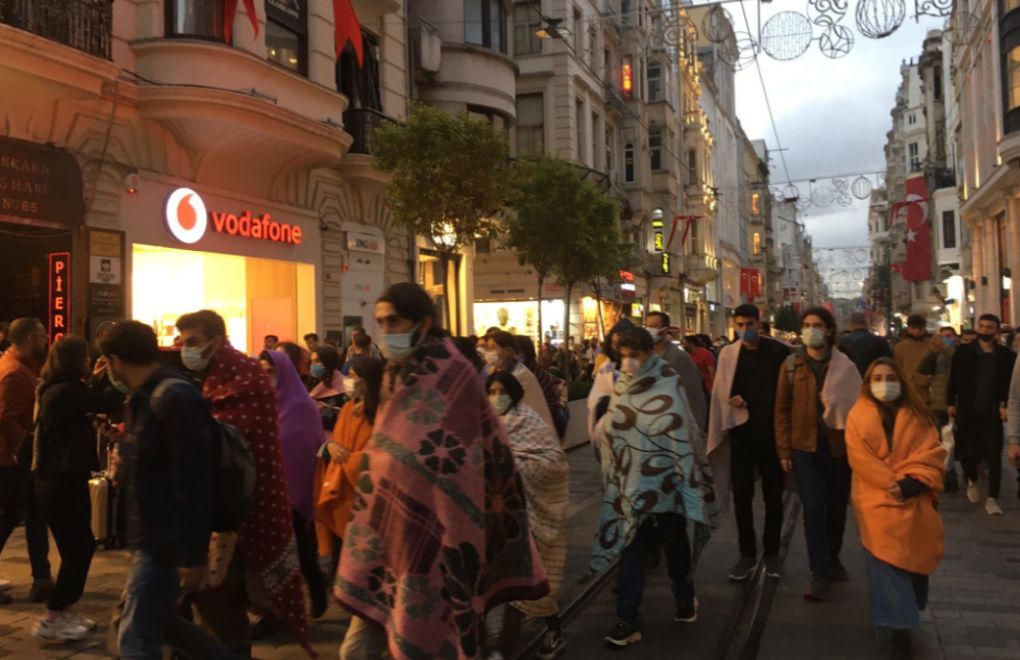

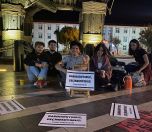

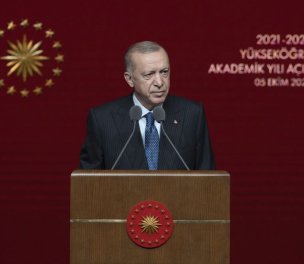
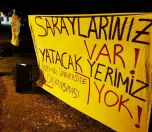

sa.jpg)
sa.jpg)
